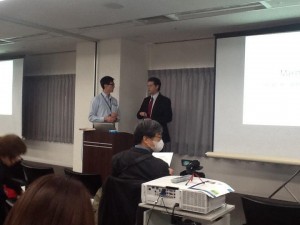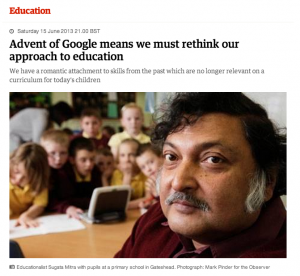conference curriculum elllo extensive listening extensive reading graded readers language courses Language learning materials online resources presentations self-study
by sendaiben
2 comments
Oxford Day 2013 video, slides, and writeup
I was extremely lucky to be invited to speak at the first Oxford Day in Japan this month.
I wasn’t really sure what to expect, but I really enjoyed the whole thing. 188 teachers attended, and there were nine presentations (five time slots). The venue was a very comfortable meeting space in Shibuya, and the provided coffee and sandwiches were excellent.
Most importantly for me, I had a fantastic group of teachers in my presentation who were very forgiving and asked me a bunch of questions at the end. Here is a copy of my slides in .pdf format and the video of the presentation is below:
131123 Maximising Input (slides in .pdf format)
If you have any questions please let me know in the comments, or send me an email to sendaiben@gmail.com.
How much do you want it?
This post came out of a conversation I had on Facebook with my friend Mark. It reminded me of something I believe, and showed me how it applied to various different aspects of life in the same way.
We were talking about financial independence (which I define as not having to work for money because your basic needs are met by passive income) and it struck me that this is almost exactly the same as English ability.
Pretty much everyone I know would like to be good at English. If I could give them a magic pill (or upload it to their brain, a la Matrix) not one of them would turn it down. How to actually get good at English is not really a secret, either. Do a lot of reading and listening in English, speak as much as possible, and after enough practice you will be fairly competent. The thing is, few people are willing to put in the time and effort to do this.
Much like financial independence, which comes from spending less than you make and investing the difference. I don’t know anyone who wouldn’t want to be financially independent, either.
As a teacher, this is kind of tough for me.
I am not going to make much difference here. All my students want to be good at English, and most of them know what they should be doing to get there. They just aren’t motivated enough.
So I guess my job is to cajole, persuade, inform, and support. Maybe I can get a few more people to take the red pill 🙂
blogging expectations Language learning materials online resources personal self-study
by sendaiben
2 comments
The daily practice
A short comment today. The concept behind this Bill Gates quote “most people overestimate what they can do in one year and underestimate what they can do in ten years” has been on my mind recently.
I’ve also seen it in my students’ and in my own life.
As one example, I recently started studying kanji again (you’d think I’d have this by now, after thirteen years in Japan) and have resolved to use Anki for 10-30 minutes in the morning each day before doing anything else. I have mostly kept on top of this and now after a couple of months I have done over six hours of focused kanji study*.
Doesn’t sound like much, but I am noticing the effects when reading and more importantly writing in Japanese.
The point is that seemingly insignificant daily habits can have a huge payoff. What are your daily habits?
*I’m using the Core 2000 and 6000 and JALUP RTK decks to study from.
EFL extensive reading high school junior high school materials online resources Reading reviews self-study teaching
by sendaiben
2 comments
Online news site for English learners
Finally, a post about teaching 🙂
I found a nice online news site this week, and have been trying it with some of my classes. I’m going to introduce the site’s functionality, my experience of using it, and then evaluate the benefits and drawbacks of using the site.
Functionality
The News in Levels website features news stories written specially for learners of English. They have three or four versions of each story (from basic or easy to more challenging), along with a video. The stories are interesting and the various difficulty levels are useful.
My experience
I used the site with some junior high school and high school classes. After choosing a story, I had students read level one and answered their questions. They we read level two together. Finally we watched the video. It was a quick and successful lesson with several groups. The site also worked well with individual students.
Good and bad points
Good:
- interesting stories
- good presentation
- texts and video
- a large number of stories on the site
- free
Bad:
- many of the texts have mistakes/typos. Missing words, spelling mistakes, strange phrasing. It would be safest to check everything first, although this could also result in some teaching moments
- the leveling isn’t always great. Sometimes the same sentences are used in two different levels
- prominent advertising throughout the site
Overall
I liked this site very much. I think it has a lot of potential as long as teachers and learners are aware of the shortcomings. Could be a good resource to allow learners to move on to higher-level texts. Worth a look.
If you have any other good websites you can recommend, please leave a comment below 🙂
curriculum expectations extensive reading language courses Language learning school management self-study TED
by sendaiben
2 comments
New Educational Paradigms
Sugata Mitra’s article in the Guardian on Saturday was very interesting. If you have seen his TED talks (and they are well worth watching), you will know the kind of educational changes he is looking to make.
What struck me is how similar it is to what my collaborator Daniel E. and I are trying to do at Tohoku University. There is a common thread running through our reading, discussion, presentation, and computer classes. We call it ‘practical’, ‘industrial’, or ‘student-focused’ English. To be honest, we haven’t found the perfect descriptor yet 😉
All of the classes are built on the following principles:
1. content and participation are student-generated
2. the bulk of the teacher’s work happens outside the classroom in planning and preparation
3. teachers have a coaching rather than instructional role
4. students are active and spend most of their time using English in pairs or small groups
5. teachers have high expectations regarding student achievement
We’ve mainly been talking about extensive reading so far, but there are plans afoot for a guide to leading discussion classes, with online study and presentation to follow after that. For now, you can catch us at the Extensive Reading World Congress in Seoul in September, or at JALT National in Kobe in October.
Or, you know, leave a comment here if you like!




